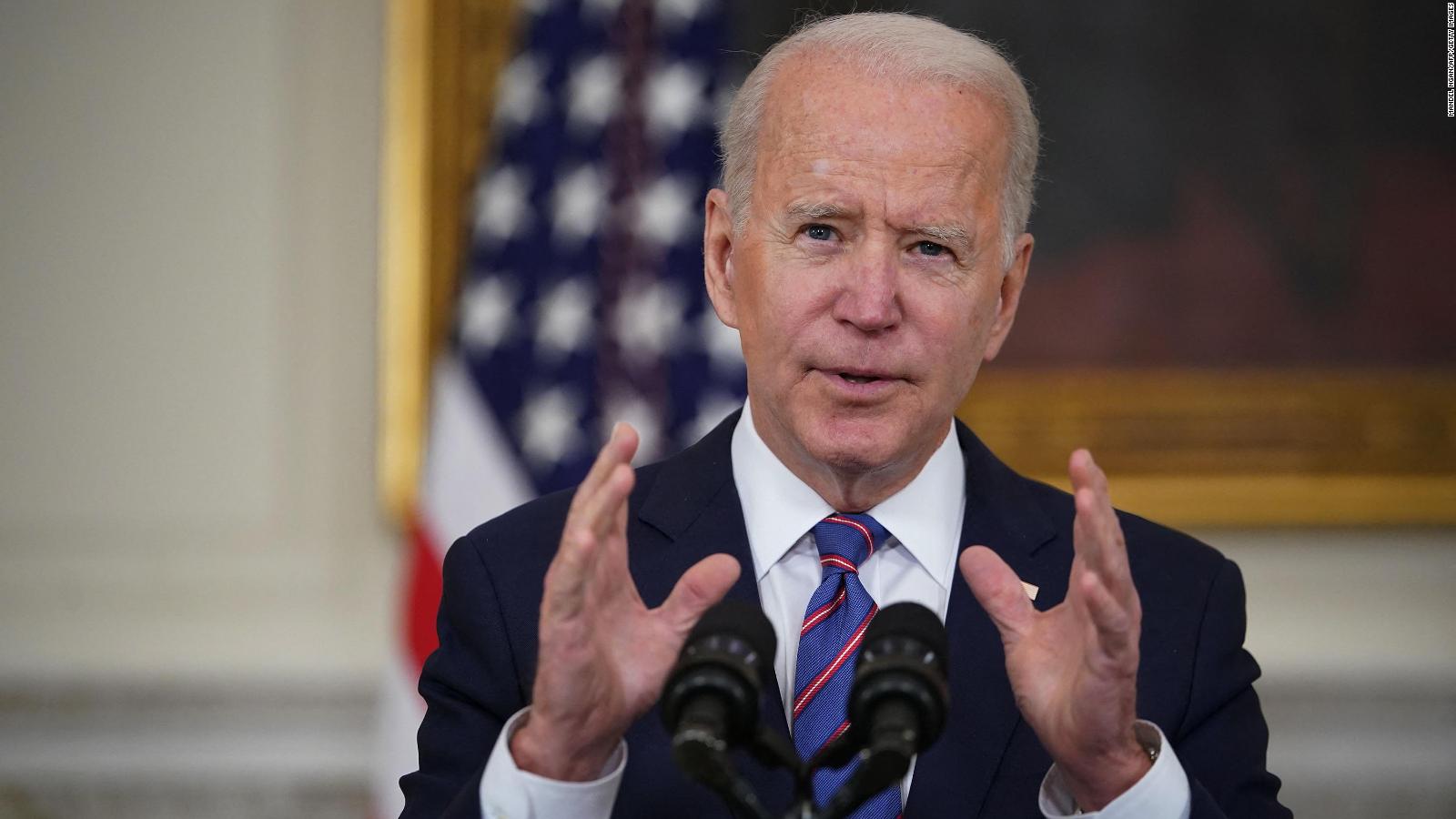On the eve of Joe Biden serving his first 100 days as president, a 12-member jury in Minneapolis found Derek Chauvin, a white ex-cop, guilty of three counts for the murder of George Floyd, a black man.
“Today we breathe a sigh of relief. Still, it can’t take the pain away. A measure of justice is not the same as fair justice, ”Vice President Kamala Harris said Tuesday, referring to the political naivety that followed a verdict that was more an exception than a rule. “We still have work to do.”
The verdict marked something of a turnaround for Biden. The president will now have to transition from the triage he immediately faced when taking office in the Oval Office amid the coronavirus pandemic to the difficult task of fulfilling more ambitious campaign promises – such as promoting racial justice for the black communities that handed him the Democratic nomination. and, ultimately, the White House.
“As he thinks about what his speech will be like before a joint session of Congress next week, he fully intends to use this opportunity to prioritize this issue and talk about the importance of implementing police reform measures,” said the press secretary. of the White House, Jen Psaki, during a press conference Wednesday.
In fact, if you want to understand the murky waters of racial equity that the president must navigate in the coming months and years, you will have to see how he and other Democrats grapple with the current police crisis that disproportionately hurts black Americans.
Earlier this month, Biden’s team quietly resigned from a campaign promise to establish a White House-led police oversight commission to direct its attention to something more forcefully: passing police reform through legislative channels. .
“The Biden-Harris administration strongly supports the George Floyd Police Justice Act and works with Congress to rapidly enact meaningful police reform that brings profound and urgently needed changes,” said National Policy Council Director Susan Rice. , it’s a statement.
What future awaits Derek Chauvin?The bill was approved by House Democrats last month, but faces big challenges with a 50-50 split in the Senate, where even with Democrats in power due to Harris’s tiebreaker vote, the Most laws need 60 votes to overcome obstructionism.
Lee Drutman, principal investigator for the Political Reform program at New America – where I used to work – does not mince words in describing the political hurdles that await Biden on a variety of societal issues due to the difficulty of abolishing or changing filibuster. .
“[El senador demócrata Joe Manchin de West Virginia] It’s been pretty clear that it’s not going to break through filibuster, ”Drutman said. “It’s hard to see anything get 60 votes in the United States Senate, anything other than the most recent initiatives, like a commission to see if there is a problem with police violence in this country.”
It is important to note that in the US, economics and race are interrelated.
“From 1619 to at least the late 1960s, American institutions, businesses, associations, and governments – federal, state, and local – repeatedly plundered black communities,” wrote journalist Ta-Nehisi Coates in 2016. “So great. It was this looting that America, as we know it today, is simply unimaginable without it. Your great universities were founded on that. Its initial economy was built on that. Its suburbs were financed by that. Their deadliest war was the result of that. ”
The president, then, could ensure a degree of racial justice through his economic proposals, key parts that can pass through reconciliation, a budget process that requires a simple majority of votes in the United States Senate.
“I see Democratic leaders structuring things so they can lead on spending and economic issues,” Drutman said. “And they feel they can achieve certain elements of racial justice by investing money in poor, underserved, primarily minority communities – but doing it as part of programs that are widely popular and distributing benefits everywhere.”
USA: analyze another employment and infrastructure packageAs I wrote earlier this month, at least part of what makes the $ 2 trillion American Employment Plan offer hope for many black citizens is the fact that it does not shy away from addressing the racial inequality that is embedded in the infrastructure of the country.
For example, Biden would spend $ 45 billion to replace all of the lead pipes and service lines in the US because according to the White House fact sheet, “no American family should continue to receive drinking water through lead pipes and service lines ”.
This stance illustrates that Biden has learned from the long-standing water crisis that began mostly in Black Flint, Michigan, in 2014 when the city began taking contaminated water from the Flint River and transporting it through old lead pipes.
Democratic pollster Celinda Lake highlighted how expansive and even radical Biden’s economic strategy is.
“This economic agenda is not your grandfather’s economic agenda – it’s a very modern economic agenda with a 21st century economic outlook,” Lake told Citizen Free Press senior political analyst Ronald Brownstein. “This economic agenda has more equity, race and gender than any economic agenda I have ever seen for this party.”
Lake continued: “It is not a color blind economic agenda. It really does rightly and effectively intertwine the race and gender components of our modern times. ”
However, a crucial question has yet to be answered: Will any kind of racial justice that Biden implements – such as those described above – essentially compensate, indulge, and help the black voters who helped him win the White House?
Forget the forecasts. It’s too early to tell.

